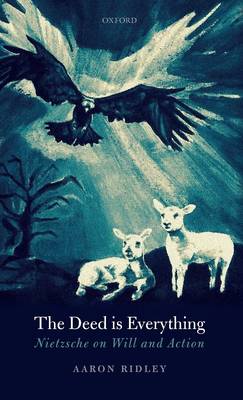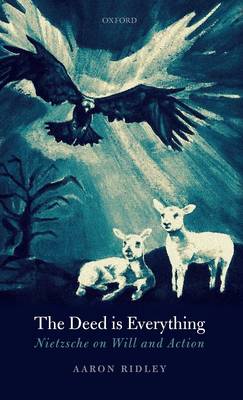
- Afhalen na 1 uur in een winkel met voorraad
- Gratis thuislevering in België vanaf € 30
- Ruim aanbod met 7 miljoen producten
- Afhalen na 1 uur in een winkel met voorraad
- Gratis thuislevering in België vanaf € 30
- Ruim aanbod met 7 miljoen producten
Zoeken
€ 138,95
+ 277 punten
Omschrijving
Nietzsche is often held to be a sceptic about human agency, keen to debunk it along every dimension. Rather than dismissing notions of autonomy and morality, The Deed is Everything presents a new and engaging interpretation of Nietzsche as being committed to an 'expressivist' conception of agency. Ridley argues that, contrary to debunking the existence of agents or selves, Nietzsche develops highly distinctive accounts of freedom, morality, and selfhood. The text revisits a variety of central Nietzschean themes - including self-creation, the sovereign individual, will to power, Kantian and Christian morality, and amor fati - often to unexpected effect. The Nietzsche who emerges from this analysis has a clear conception of human agency and a robust commitment to the value of human excellence in all of its forms. This comprehensive study of Nietzsche and expressive action is important reading for all Nietzsche scholars and philosophers of agency.
Specificaties
Betrokkenen
- Auteur(s):
- Uitgeverij:
Inhoud
- Aantal bladzijden:
- 218
- Taal:
- Engels
Eigenschappen
- Productcode (EAN):
- 9780198825449
- Verschijningsdatum:
- 19/09/2018
- Uitvoering:
- Hardcover
- Formaat:
- Genaaid
- Afmetingen:
- 145 mm x 218 mm
- Gewicht:
- 408 g

Alleen bij Standaard Boekhandel
+ 277 punten op je klantenkaart van Standaard Boekhandel
Beoordelingen
We publiceren alleen reviews die voldoen aan de voorwaarden voor reviews. Bekijk onze voorwaarden voor reviews.











